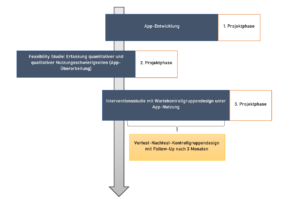General description
PeerPAL is a joint project of the Ostbayerische Technische Hochschule (OTH) Regensburg and the Katholische Hochschule (KH) Mainz. Prof.Dr. Norina Lauer, Professor of Speech Therapy at the Faculty of Applied Social and Health Sciences and member of the Regensburg Center of Health Sciences and Technology (RCHST), is responsible for project management and coordination. Prof.Dr. Sabine Corsten, Professor of Speech Therapy at the Department of Health and Nursing at the Catholic University of Applied Sciences Mainz (KH Mainz), is in charge of the project at KH Mainz. The project leaders are also currently jointly managing the BMBF-funded project "Biography Work in Senior Facilities with Tablet Support to Improve Quality of Life and Communication - BaSeTaLK". The goal of the PeerPAL project is the development and evaluation of an accessible digital social network for systematic and sustainable autonomous networking in the sense of peer support in aphasia to increase the quality of life. Furthermore, the psychological well-being should be increased. The possibility of a digital exchange is also intended to improve social inclusion. The description of the project was selected for funding in the funding guideline "Improving the quality of life in urban and rural areas through social innovation" (FH-Sozial 2018). The joint project will run for a total of three years (2020-2023).
Theoretical background of the project
The starting point for the research project is the considerable impairment of the quality of life of people with aphasia due to an altered experience of identity and autonomy, which can lead to social withdrawal. Particularly important for successful coping with aphasia are activities and relationships of the affected person that are perceived as meaningful. People with aphasia benefit from peer interaction and mutual support, as their own self-efficacy and psychological well-being are enhanced. Digital support in the form of easier access and technical communication aids can improve autonomous networking. This is where PeerPAL comes in, as this project is the first to promote the positive effects of self-help through digital as well as social inclusion.
Aims of PeerPAL
![]()
Development of a barrier-free
digital social network
![]()
"Peer-to-peer" exchange and
support among each other
![]()
Increasing the quality of life
and social participation
of people with aphasia
Research Design
The project is divided into three work phases:
1) Twelve-month phase of app development.
2) Feasibility study with 4 individuals with aphasia to quantitatively and qualitatively assess difficulties of use.
3) Evaluation of social network in a randomised pretest-night control group design with follow-up after 3 months.

Milestones

